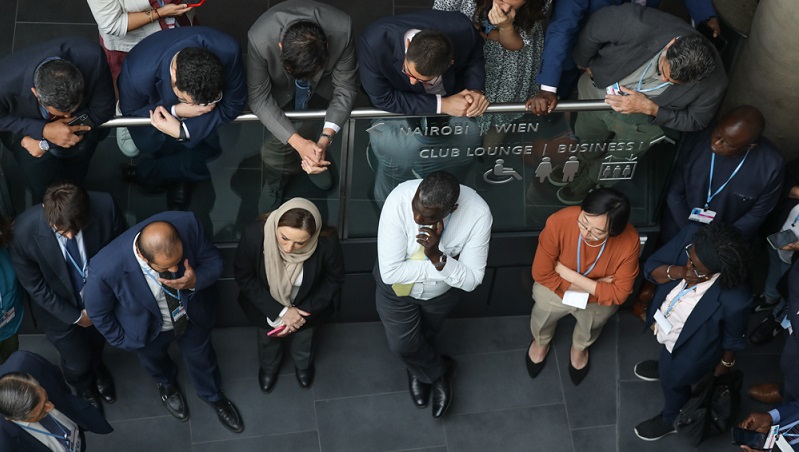A group of developing countries wouldn’t talk about emissions cuts without talking about finance – but developed countries refused to accept that
A group of small islands which are vulnerable to climate change said they were “disappointed” after governments were unable to agree to put discussions on cutting emissions on the official agenda of climate talks in the German city of Bonn this week.
A group of developing countries refused to talk about cutting emissions without also discussing rich countries giving them more money for climate action. Developed countries refused to accept this, claiming climate finance was being discussed in other strands of the talks and the finance agenda item should have been proposed earlier.
After nine days of debate and desperate pleas from the Pakistani co-chair of the talks to find a compromise, on Wednesday evening the two sides agreed to approve the agenda by dropping both the contentious items.
China is quick to combat social media’s climate lies – but not when they are about their critics
Ismail Zahir is a principal advisor to the Aosis group of small islands, many of which are suffering from sea level rise. He told Climate Home he was “disappointed” that talks about emission cuts weren’t on the agenda “as it would have been a useful space to advance the dialogue on [cutting emission] outcomes at Cop28”.
E3G analyst Tom Evans said that the emissions cut talks absence from the official agenda means that those pushing for governments to agree to phase out fossil fuels or other energy transition outcomes at Cop28 “have slightly more work cut out for them when we get to [Cop28] in Dubai”.
The mitigation work programme
A year and a half ago at Cop26, governments agreed to set up a “work programme” on emissions cuts “in this critical decade”. They noted that emissions were projected to be 14% above 2010 levels in 2030 whereas, to limit global warming to 1.5C, emissions need to fall by 45%.
At Cop27, governments fought over how long these talks should be and what should be discussed. Emerging economies pushed for them to be short, weak and wide-ranging while developed and vulnerable countries wanted the opposite.
But at the Bonn climate talks, the annual gathering of climate negotiators halfway between Cops, a group of developing countries opposed this work programme being put on the official agenda unless an item on developed countries giving them more climate finance was also included.
The Overshoot Commission is talking about solar geoengineering. Not everyone thinks it should
Bolivia’s negotiator Diego Pacheco, who represents a group of large emerging countries including China and India, said: “In our hunger for action, discussions have centred exclusively on scaling up ambition against the backdrop of broken promises, failed commitments and low delivery of means of implementation and support from developed countries”.
But a group of mainly developed countries refused to accept this, with the European Union’s negotiator claiming “we have already ample places that we are negotiating on finance”. Small island states and some Latin American nations supported these rich nations in opposing an extra agenda item on finance.
After nine days of talks, both blocks ref
Read More

